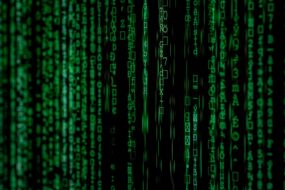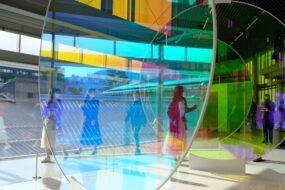
As I reflect on the evolution of content creation, it’s impossible to ignore the profound impact that artificial intelligence (AI) has had on the landscape. Over the past few years, I have witnessed a remarkable shift in how content is produced, distributed, and consumed. The rise of AI has transformed traditional methods, enabling creators to harness advanced technologies that streamline processes and enhance creativity.
This transformation is not merely a trend; it represents a fundamental change in the way we approach storytelling and information dissemination. The proliferation of AI tools has democratized content creation, allowing individuals and businesses alike to produce high-quality material with unprecedented efficiency. I find it fascinating how algorithms can analyze vast amounts of data to generate insights that inform content strategies.
This capability has empowered me and countless others to create more relevant and engaging content tailored to specific audiences. As I delve deeper into this realm, I realize that AI is not just a tool; it is a partner in the creative process, augmenting my abilities and expanding the horizons of what is possible.
Key Takeaways
- AI is revolutionizing content creation by automating processes and generating personalized content at scale.
- AI-powered tools like GPT-3, Articoolo, and Copy.ai are transforming content creation by generating articles, blog posts, and social media content.
- AI has the potential to improve content quality by analyzing data, predicting trends, and optimizing content for specific audiences.
- AI plays a crucial role in personalized content creation by analyzing user data and behavior to deliver tailored content experiences.
- Ethical considerations in AI-generated content include issues of bias, privacy, and the potential for misinformation and manipulation.
AI-Powered Content Generation Tools
In my journey through the world of AI-powered content generation tools, I have encountered a plethora of options designed to assist creators at every stage of the content lifecycle.
I often find myself relying on AI to brainstorm ideas, refine my writing, and even optimize my content for search engines.
One of the most exciting aspects of these tools is their ability to learn and adapt over time. As I use them more frequently, they become increasingly attuned to my style and preferences, allowing for a more personalized experience. This adaptability not only saves me time but also enhances the quality of my output.
I can focus on the creative aspects of my work while leaving repetitive tasks to AI, which ultimately leads to a more efficient workflow. The synergy between human creativity and machine intelligence is a powerful combination that I believe will continue to shape the future of content creation.
The Impact of AI on Content Quality

As I explore the impact of AI on content quality, I find myself grappling with both its advantages and potential drawbacks. On one hand, AI has significantly improved the consistency and accuracy of content production. With tools that can analyze grammar, style, and tone, I am able to produce polished pieces that resonate with my audience.
The ability to generate data-driven insights also allows me to create content that is not only engaging but also relevant to current trends and topics. However, I must also acknowledge the concerns surrounding the over-reliance on AI in content creation. While these tools can enhance quality, there is a risk that they may lead to homogenization in writing styles and ideas.
As I navigate this landscape, I strive to maintain my unique voice and perspective while leveraging AI’s capabilities. It is essential for me to strike a balance between utilizing technology and preserving the authenticity that defines my work. Ultimately, I believe that AI should serve as an enhancement rather than a replacement for human creativity.
The Role of AI in Personalized Content Creation
Personalization has become a cornerstone of effective content marketing, and AI plays a pivotal role in this evolution. As I delve into personalized content creation, I am continually amazed by how AI can analyze user behavior and preferences to deliver tailored experiences. By leveraging data analytics, I can create content that speaks directly to the needs and interests of my audience, fostering deeper connections and engagement.
For instance, AI-driven tools can help me identify trends in user interactions, enabling me to adjust my content strategy accordingly. This level of personalization not only enhances user experience but also drives higher conversion rates.
As I embrace this approach, I recognize that AI empowers me to create meaningful connections with my audience, ultimately leading to more impactful content.
Ethical Considerations in AI-Generated Content
As I navigate the complexities of AI-generated content, ethical considerations loom large in my mind. The rapid advancement of AI technology raises important questions about authorship, accountability, and transparency. When I use AI tools to generate content, I often wonder about the implications of presenting machine-generated work as my own.
It is crucial for me to maintain integrity in my creative process and ensure that my audience understands the role AI plays in my work. Moreover, there are concerns about bias in AI algorithms that can inadvertently perpetuate stereotypes or misinformation. As a responsible creator, I feel a sense of duty to critically evaluate the outputs generated by AI tools and ensure they align with ethical standards.
This involves actively questioning the data sources used by these algorithms and being vigilant about potential biases that may arise. By prioritizing ethical considerations in my use of AI, I aim to contribute positively to the evolving landscape of content creation.
The Future of AI in Multimedia Content Creation

Looking ahead, I am excited about the potential of AI in multimedia content creation. The integration of AI into video production, graphic design, and audio editing is already transforming how we tell stories across various platforms. As I experiment with these technologies, I find myself captivated by the possibilities they offer for enhancing visual storytelling and creating immersive experiences.
AI-driven tools can automate time-consuming tasks such as video editing or sound mixing, allowing me to focus on the creative aspects of my projects. Additionally, advancements in deep learning have enabled the generation of realistic animations and graphics that were once reserved for skilled artists. This democratization of multimedia creation empowers me to experiment with new formats and styles without requiring extensive technical expertise.
As I embrace these innovations, I envision a future where AI serves as a catalyst for creativity, enabling me to push boundaries and explore uncharted territories in multimedia storytelling.
AI and the Evolution of Content Marketing
The evolution of content marketing has been significantly influenced by the rise of AI technologies. As I reflect on this transformation, it becomes clear that AI has revolutionized how marketers approach their strategies. With data-driven insights at our fingertips, we can now create highly targeted campaigns that resonate with specific demographics and psychographics.
AI’s ability to analyze consumer behavior patterns allows me to refine my marketing efforts continuously. By understanding what types of content perform best with different audiences, I can tailor my messaging accordingly. This level of precision not only enhances engagement but also maximizes return on investment for marketing initiatives.
As I embrace this data-centric approach, I recognize that AI is not just a tool for efficiency; it is an essential component of modern marketing strategies that drive results.
The Potential of AI in Creative Collaboration
As I contemplate the future of creative collaboration, I am increasingly intrigued by the role that AI can play in fostering innovation and teamwork. The collaborative nature of content creation often involves diverse perspectives and skill sets, and AI has the potential to enhance this process significantly. By providing real-time feedback and suggestions during brainstorming sessions or collaborative projects, AI can facilitate more dynamic interactions among team members.
Moreover, AI can help bridge gaps between different disciplines by offering insights that may not be immediately apparent to human collaborators. For instance, when working on a project that combines writing with visual design, AI can analyze how text and imagery interact to create a cohesive narrative. This ability to synthesize information from various sources empowers me to collaborate more effectively with others while pushing the boundaries of creativity.
In conclusion, as I navigate the ever-evolving landscape of content creation powered by artificial intelligence, I am filled with both excitement and contemplation. The rise of AI has transformed how we create, personalize, and market content while raising important ethical considerations along the way. As I look toward the future, I am optimistic about the potential for AI to enhance creativity and collaboration while remaining committed to preserving authenticity in my work.
The journey ahead promises to be one filled with innovation and discovery as we continue to explore the intersection of human creativity and machine intelligence.
FAQs
What is AI content creation?
AI content creation refers to the use of artificial intelligence technologies to generate written, visual, or audio content. This can include anything from automated article writing to the creation of images and videos.
How does AI contribute to content creation?
AI contributes to content creation by automating various aspects of the process, such as generating ideas, writing drafts, editing, and even designing visuals. This can help streamline the content creation process and free up human creators to focus on more strategic and creative tasks.
What are the potential benefits of AI in content creation?
The potential benefits of AI in content creation include increased efficiency, scalability, and cost-effectiveness. AI can also help improve content quality by providing data-driven insights and personalized recommendations.
What are the potential challenges of AI in content creation?
Some potential challenges of AI in content creation include concerns about job displacement, ethical considerations around the use of AI-generated content, and the need for human oversight to ensure accuracy and relevance.
What are some examples of AI content creation tools?
Examples of AI content creation tools include natural language generation platforms like OpenAI’s GPT-3, automated video editing software like Magisto, and image generation tools like DeepArt and RunwayML.
How is AI expected to impact the future of content creation?
AI is expected to have a significant impact on the future of content creation by enabling more personalized and data-driven content, as well as by automating routine tasks to free up human creators for more strategic and creative work.










No Comments